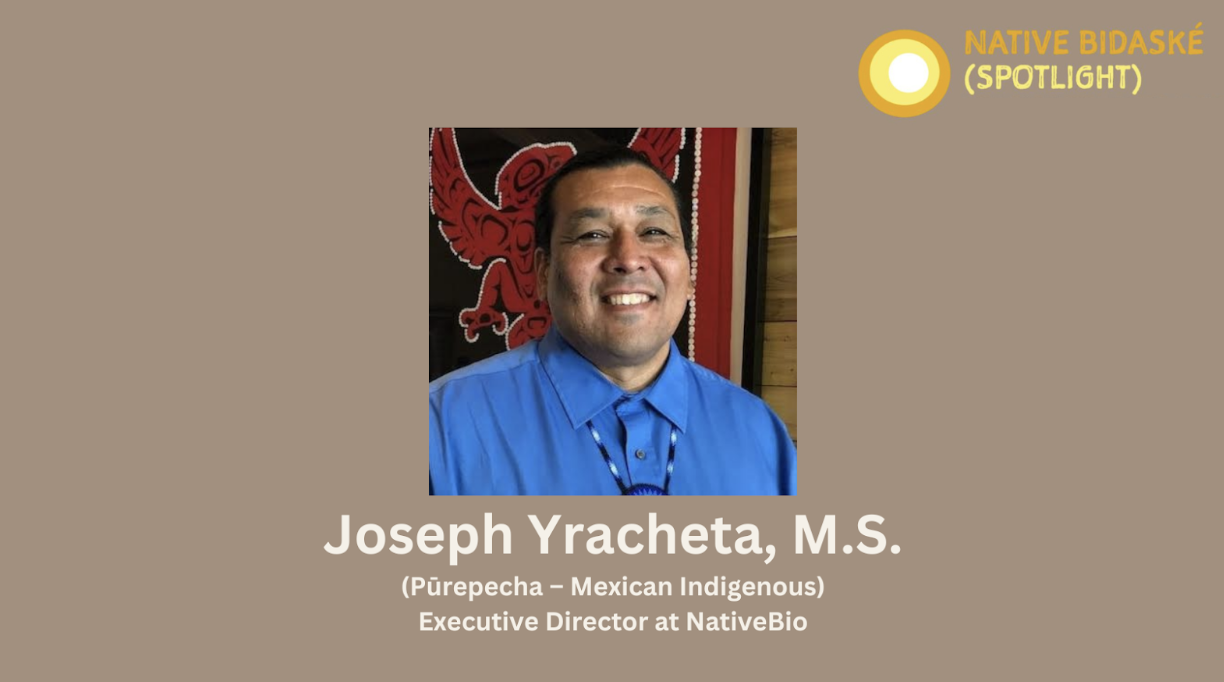
- Details
- By Native News Online Staff
Join us for an exclusive Native Bidaské as host Levi Rickert interviews Joseph Yracheta, M.S. (Pūrepecha – Mexican Indigenous)., shedding light on the $9 million NIH grant awarded to Stanford University and Native BioData Consortium.
Yracheta is a distinguished figure of Pūrepecha descent with a Master’s in Pharmacogenomics from the University of Washington.
He is currently a DrPH candidate in Epidemiology at Johns Hopkins University and serves as the Executive Director and laboratory manager of the Native BioData Consortium
Stanford University and Native BioData Consortium have received a $9 million NIH grant to establish an Indigenous Data Repository, RADx Tribal Data Repository (RADx TDR). Led by Native scientists, the project focuses on utilizing anonymized Indigenous data for crucial health research, specifically addressing the impact of COVID-19 on tribal communities.
Managed by NativeBio, RADx TDR aligns with the NIH's RADx®-UP initiative for COVID-19 testing in underserved populations. Recognized as a landmark decision, it is applauded by Yracheta and Cheyenne River Sioux Tribe Chairman Ryman LeBeau for empowering Tribal Nations in administering health programs.
Learn more about this transformative project and tune in on Friday, December 15, at Noon, E.T. on Native News Online's Facebook, Twitter, or YouTube channel.
More Stories Like This
Native News Weekly (August 25, 2024): D.C. BriefsNavajo Nation Mourns the Passing of Former Vice President Rex Lee Jim
Deb Haaland Earns Endorsement From Communications Workers of America Local 7076
University Soccer Standout Leads by Example
Two Native Americans Named to Democratic Congressional Campaign Committee's“Red to Blue” Program
Help us defend tribal sovereignty.
At Native News Online, our mission is rooted in telling the stories that strengthen sovereignty and uplift Indigenous voices — not just at year’s end, but every single day.
Because of your generosity last year, we were able to keep our reporters on the ground in tribal communities, at national gatherings and in the halls of Congress — covering the issues that matter most to Indian Country: sovereignty, culture, education, health and economic opportunity.
That support sustained us through a tough year in 2025. Now, as we look to the year ahead, we need your help right now to ensure warrior journalism remains strong — reporting that defends tribal sovereignty, amplifies Native truth, and holds power accountable.
 The stakes couldn't be higher. Your support keeps Native voices heard, Native stories told and Native sovereignty defended.
The stakes couldn't be higher. Your support keeps Native voices heard, Native stories told and Native sovereignty defended.
Stand with Warrior Journalism today.
Levi Rickert (Potawatomi), Editor & Publisher

